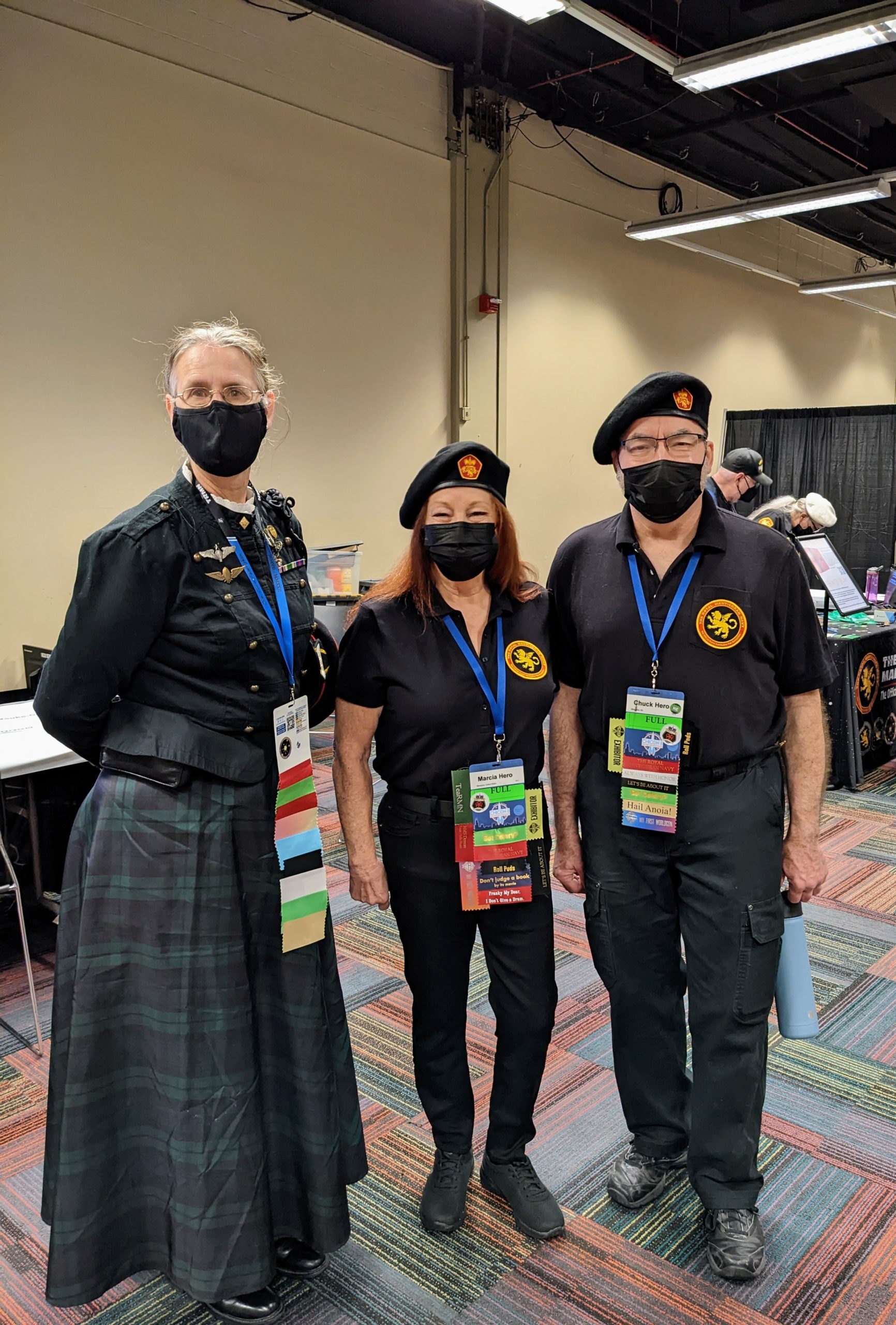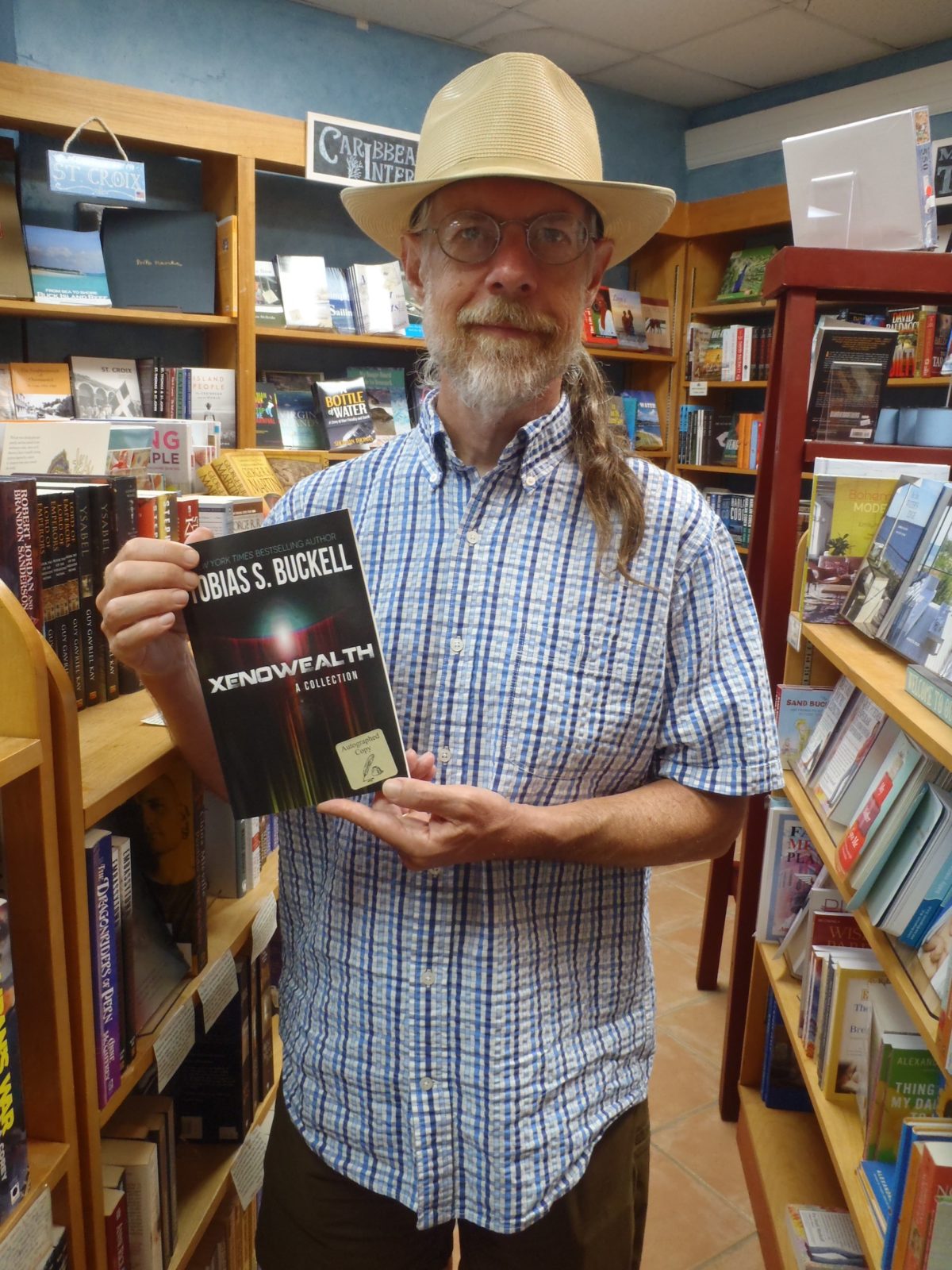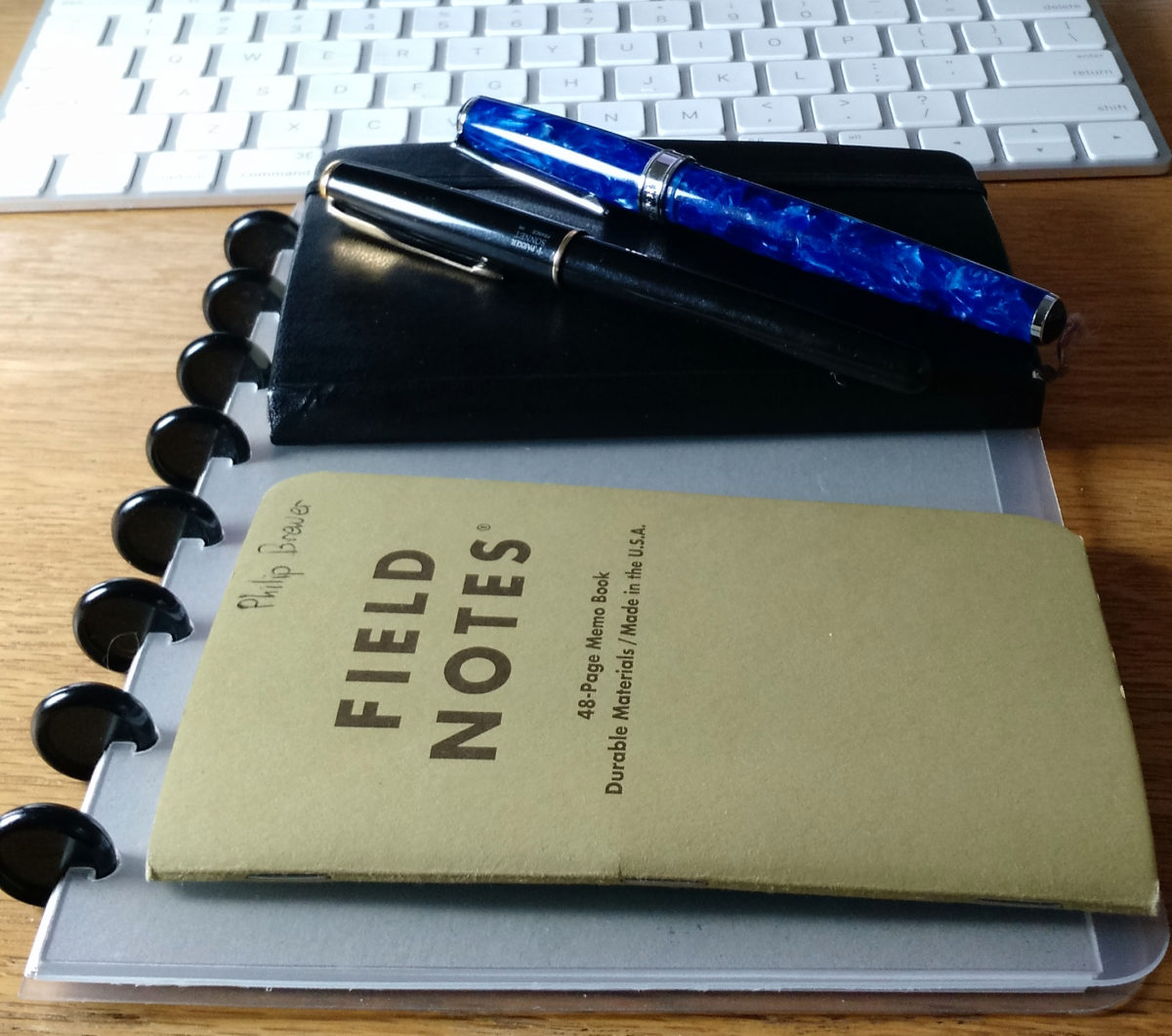An astonishing number of people at #ChiCon8 doing @tobiasbuckell cosplay! I mean, not very well, but you know, making an effort.


An astonishing number of people at #ChiCon8 doing @tobiasbuckell cosplay! I mean, not very well, but you know, making an effort.

A great post by Toby on setting a modest daily goal and sticking to it:
But I noticed a few more things. I started getting smaller projects done and things for me done. That book I wanted to read, well, I hit my 500. So lets read it.
Source: Tobias S. Buckell

We went to Undercover Books in Christensted on St. Croix so my dad could look for Birds of the West Indies (which they had, and which Dad did get a copy of). While we were there, Steve noticed that they had copies of Tobias Buckell‘s books on the shelf, including this signed copy of Xenowealth. (Sorry, Toby, for carelessly covering part of your name in the photo!)
A great bookstore, by the way. Excellent SF section, excellent selection for tourists (books on local history, pirates, etc.), great selection of books for locals, books by local writers prominently displayed. I also really like their tortoise-under-a-book logo.

Several things came together to get me started with paper journals again.
My brother suggested that we might write one another actual paper letters. I think that was partially just because it’s fun to receive actual paper letters, but also because we’d been talking about reviving an idea we worked on a while back, for collaborating on an epistolary story in Esperanto, which would involve the characters writing actual paper letters, which put us in the frame of mind of thinking about letters.
At about the same time, Tobias Buckell wrote a post about starting a bullet journal, with links to a couple of videos (one a nice review of a particular notebook designed with bullet journaling in mind, the other a video on starting a bullet journal).
As an aside, let me mention that the main bullet journal site has the “reference guide” for bullet journaling translated into many languages, including Esperanto! (They want you to give them your email address and sign up for their newsletter to get the link to the reference guides.)
I’m perpetually vulnerable to diving too deep down this particular rabbit hole, geeking out over anything and everything related: notebooks, paper, pens, etc. Already I have:
I’m having great fun. It’s probably a big waste of time, but I’m finding it a at least a little bit useful:
I think Steven and I will continue writing one another, at least for a while; it’s fun! I’m continuing my bullet journal—I’m currently on day six. My handwriting has definitely improved.
Basically, it’s all good. Even if there are obvious advantages to just keeping stuff in a computer, it’s not as much fun, and why do stuff if it isn’t fun?
I’ve just enjoyed a fascinating talk by Lisa Yaszek, presented as part of the Writing Another Future symposium going on right now at the University of Illinois.
The topic as presented on their website was “International Science Fiction,” but her slides were headlined “Writing Black Futures,” which was a more accurate title.
The talk mainly presented a structure for organizing African science fiction, dividing it into three categories US Afrofuturism (1850–1960), Atlantic Afrofuturism (1960–present), and African Afrofuturism (1980–present). Her organizing principle seems to be just as stated in the title—the periods were categorized by how the authors viewed the futures of people of African descent—and how those views were influence by (and illuminated) how they viewed their pasts. She also talked about shifting themes of how blacks are viewed by white society—from invisibility to misrepresentation to afro-pessimism.
She talked about several African sf writers that I wasn’t familiar with: Kwasi A. Kwakwa and Jonathan Dotse both sound like people I’d like to read more of.
There was some time for questions at the end. One person asked about how so much African sf is written in English. Yaszek seemed to think it came down to two things. One was the size of the market. No African country, not even South Africa, is big enough to sustain a publisher of just African sf, and writing in English gives you access to a global market. The other was that writing about technology and its impact on the future requires the words to talk about technology, and the vocabulary of technology is all in English.
I asked about Nnedi Okorafor and Tobias Buckell. She was familiar with both (although she made the classic error of inserting an “n” into Toby’s last name). She admitted to having read little of Toby’s fiction, but extravagantly praised his writing about sf. Having coming to Toby’s writing through his fiction, I found that an interesting perspective.
Now I’m heading right back out to hear Kim Stanley Robinson’s keynote for the symposium!